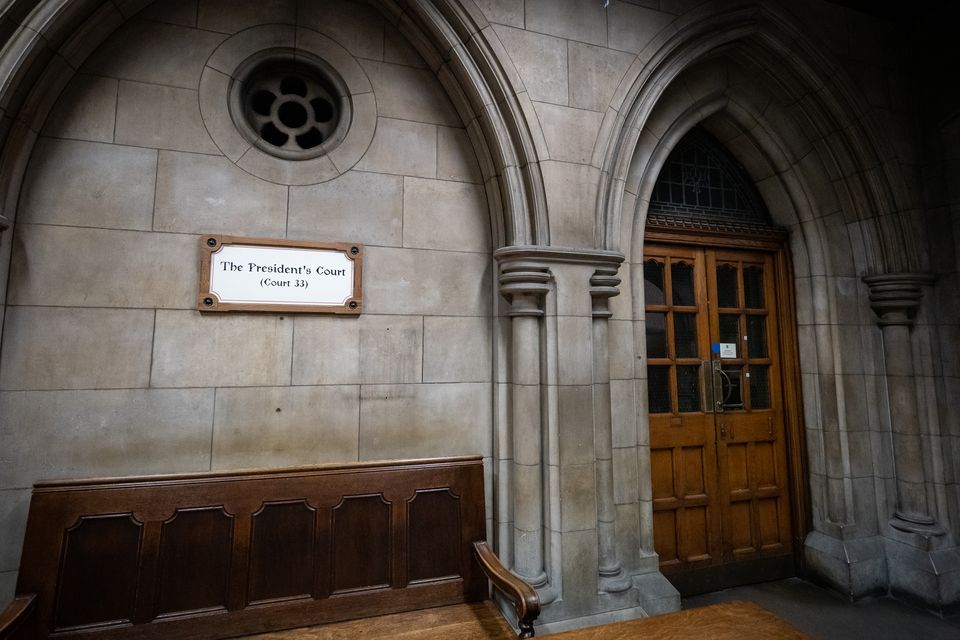A scheme allowing journalists increased access to family courts is being rolled out across the country in a bid to improve transparency.
The initiative permits accredited journalists and legal bloggers to report on cases as they unfold, as they would in criminal courts, provided the families and certain professionals involved remain anonymous.
A pilot scheme was launched in 2023 at family courts in Leeds, Cardiff and Carlisle and was extended to cover a further 13 courts in January last year, including Liverpool, Truro, Milton Keynes and east London.
From Monday, the new “reporting provisions” will apply to all family courts in England and Wales.
President of the Family Division Sir Andrew McFarlane said: “The establishment of the open reporting provisions in all family courts in England and Wales is a watershed moment for family justice.
“Improving public understanding and confidence in the family court is of fundamental importance.
“Over the last two years, there has been a presumption that journalists and legal bloggers can report what they see and hear from pilot courts in England and Wales.
“The reporting that we have seen has been significant, and includes coverage of issues affecting some of the most vulnerable people in our society, such as children subject to deprivation of liberty orders; the need to limit parental rights for convicted paedophiles and cases of child neglect or abandonment.
“There have been no known breaches of anonymity of children, and the aims of the pilot, to increase public understanding and awareness of the Family Court, are being realised.
“I am grateful to all in the court system who have supported the pilot, but I would particularly like to thank all of the journalists and legal bloggers who have engaged with the pilot over the last two years and would like to urge them and others to continue to report on these complex and vitally important issues.”
The President’s Court at the Royal Courts of Justice (Aaron Chown/PA)
Although reporters have had access to courts dealing with sensitive matters involving children for some time, despite them being closed to the public, reporting was previously highly restricted to only what a judge would allow.
Under the new rules, cases attended by journalists and bloggers will be covered by a transparency order, setting out what can be reported.
Reporters can also access some basic case documents and families can talk to journalists about their case, without risking punishment for contempt of court.
Judges may still decide some cases may not be reported on, or that reporting should be postponed in certain circumstances.
A judiciary spokesperson said there have been no known breaches of anonymity in reporting under the pilot.
The scheme will cover public law cases, for example, those involving local authorities, private law cases such as custody battles between separated parents, and financial remedy disputes.
Lucy Reed KC, chairwoman of the Transparency Project, a charity set up in 2015 to promote transparency in the family justice system, welcomed the rollout.
She said: “The reporting pilot that has been gradually extended since 2023 has been a success, and has enabled more and better reporting of family justice without compromising the wellbeing and privacy of families.
“Making that pilot into a permanent feature in all family courts in England and Wales is a huge step forward, which we welcome.
“It means, we hope, that a clear signal will be sent that transparency is core to the work of the family court and that it is here to stay.
“Finding ways to make the family court more transparent, accountable and understandable is not easy when much of the work that the courts deal with is so very sensitive, but it is critically important if the family court is to build and maintain public trust and confidence.
“Permitting anonymised reporting by journalists and legal bloggers has enabled the court to find a better balance between the twin needs for transparency and privacy.”
But Alexandra Hirst, senior associate in the family team at law firm Boodle Hatfield, said “strict rules” should be put in place around “appropriate reporting” as “where there is uncertainty, there is stress”.
She said: “The intense pressure of family law proceedings is stressful enough without the added worry of deeply personal and sensitive information being reported on by the media.
“These are not criminal proceedings, but these changes are likely to make individuals who may have never experienced litigation before feel as though they are on trial.
“The comforting reassurance that their hearing will remain private and is highly unlikely to be reported on will be undermined by this change.”
